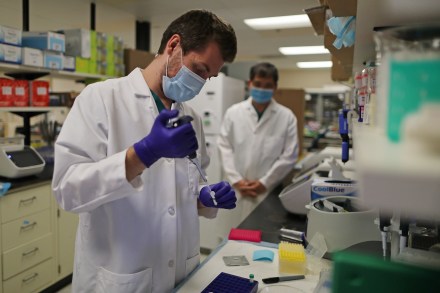If we want herd immunity, we need mass testing
At the start of the pandemic, we talked a lot about herd (or community) immunity. But talking about the journey to herd immunity became toxic as it was variously linked to high infection rates, sacrificing the elderly, and the NHS becoming overwhelmed. The debate on herd immunity was restarted last week by Professor Karl Friston, of University College London, who told the Daily Telegraph that the 73.4 per cent vaccinated reached on Monday meant that ‘based upon contact rates at the beginning of the pandemic and estimated transmission risk, this is nearly at the herd immunity threshold.’ This is an outlying view: other academics questioned this analysis. Matt Hancock said








